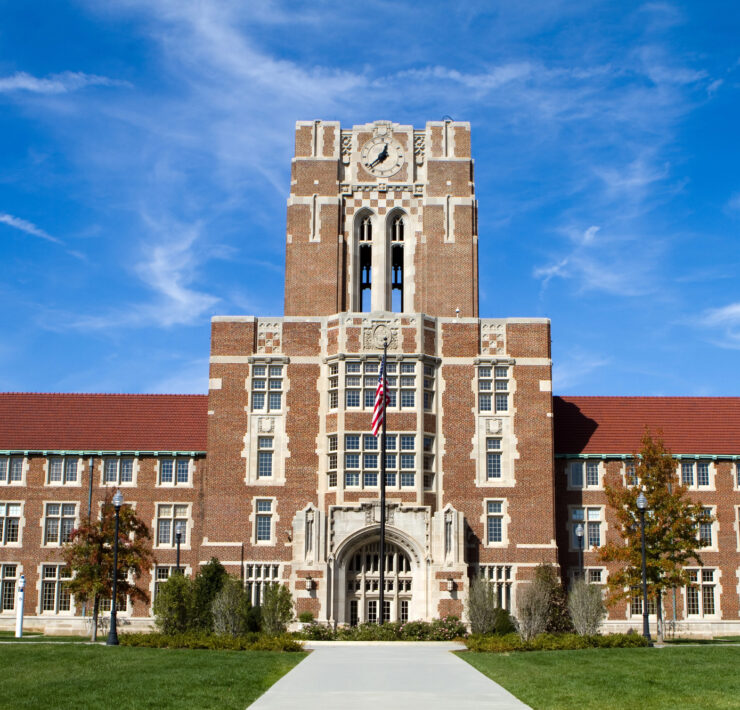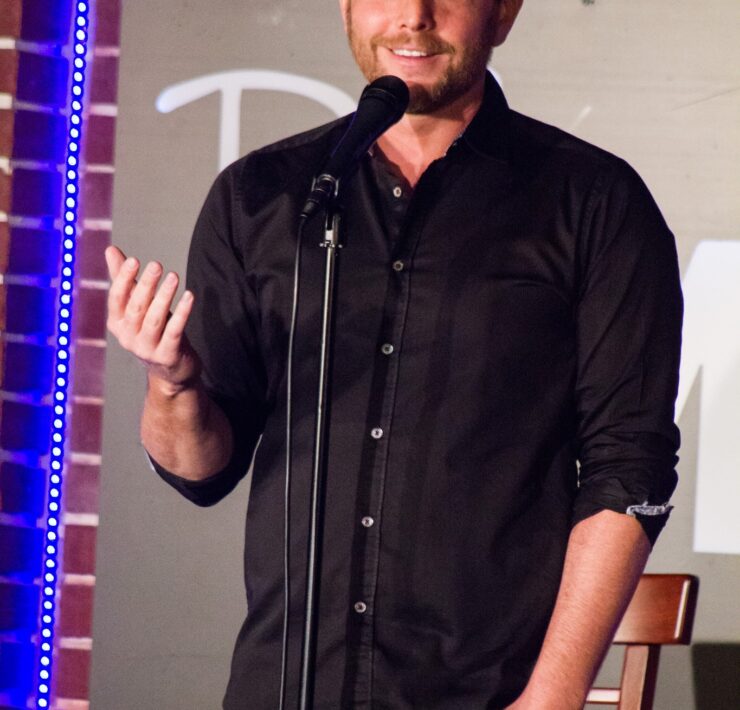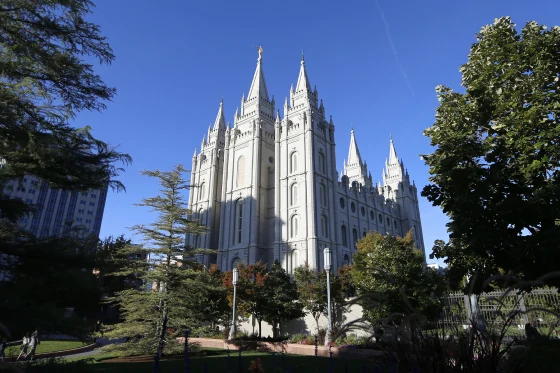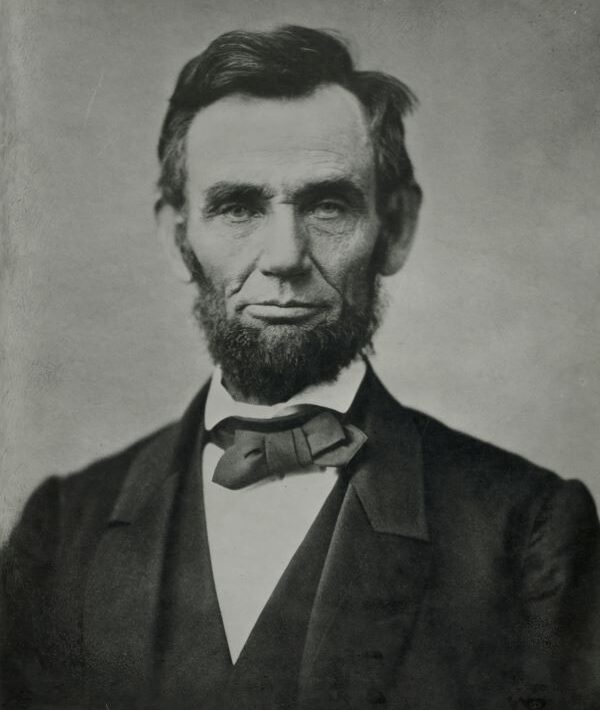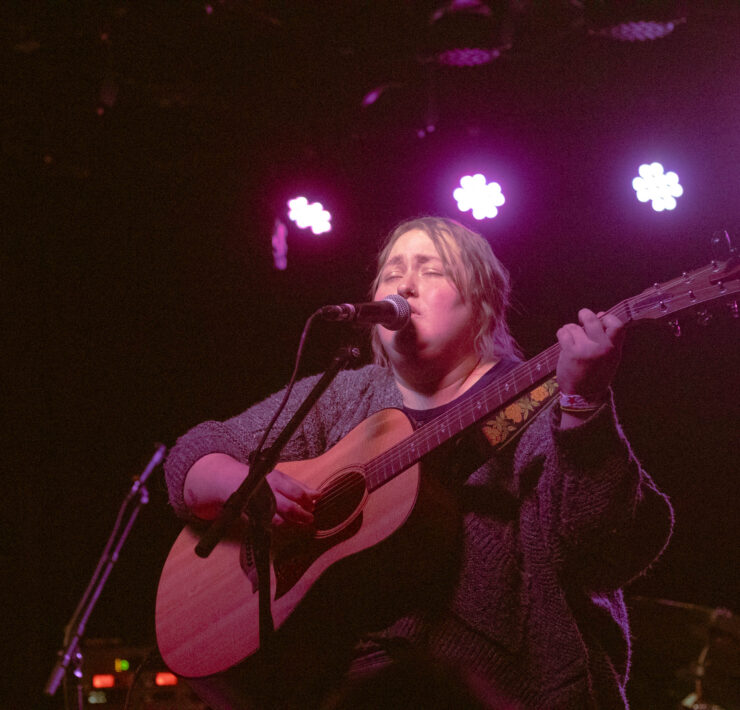Dustin Lance Black and Laurent Bouzereau Talk ‘Mama’s Boy’
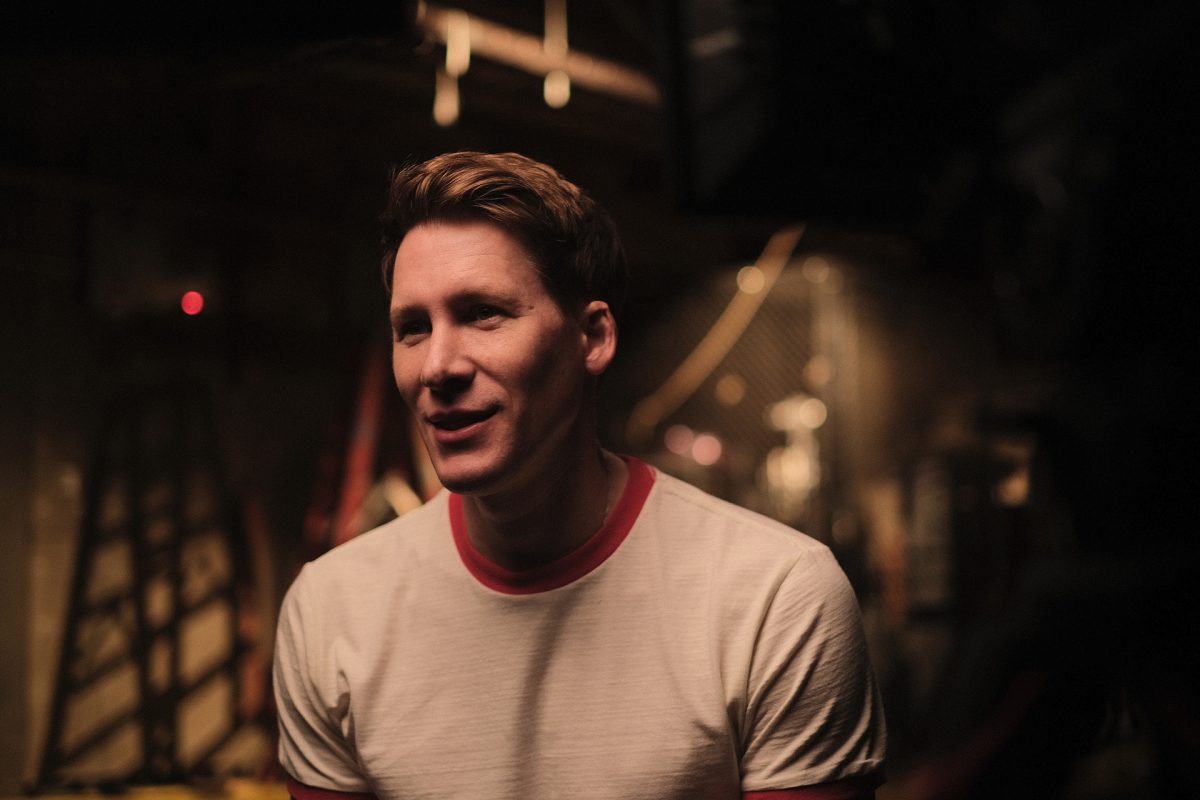
Denny Patterson is a St. Louis-based entertainment and lifestyle journalist…
Before Dustin Lance Black became the Academy Award winning screenwriter and LGBTQ rights activist we know today, he faced plenty of difficult challenges in life that millions of us can relate to. Black candidly talks about these issues, such as growing up gay while surrounded by religious culture, in his 2019 memoir Mama’s Boy, which came to life in a new HBO documentary last month.
Directed by Laurent Bouzereau (Natalie Wood: What Remains Behind), the film follows how Black, who was raised in the Church of Jesus Christ of Latter-day Saints, struggled to reconcile his childhood faith with his identity as a gay man before moving to Los Angeles to study filmmaking. Once he began living as his true self, he became estranged from members of his extended family.
Black and Bouzereau travel back to the places where the artist explores his Southern Mormon childhood roots, gay identity, and close relationship with his late mother, Rosanna “Anne” Bisch, who became the inspiration for Black’s activism. He reconnects with conservative family members, and in doing so, he urges more LGBTQ people to do the same.
OFM had the opportunity to talk more about Mama’s Boy with Black and Bouzereau.
Dustin, how does it feel that this documentary is finally available for the world to see?
I am ever so slightly terrified (laughs). This is very personal, and thankfully, it was Laurent who reached out to me asking to turn the book into a documentary. I love the films that he’s made, and I really trusted him to adapt it, but it’s one thing to sit in the safety of an office writing a memoir. It’s another to go to the places and be with the people who were formative in your youth, whether that’s Texarkana, Texas, or Salt Lake City, Utah, knowing that not everyone’s going to agree with you and to see if you can build those bridges with cameras rolling.
It was an emotional challenge. It was a challenge to see if my mother was right, that you can share space and build a bridge. It worked when my mother came in my direction when she was still around, going from sort of a conservative world to a more progressive world, and Laurent wanted to capture what happened when I reversed that course. I’m definitely eager to see what people think.
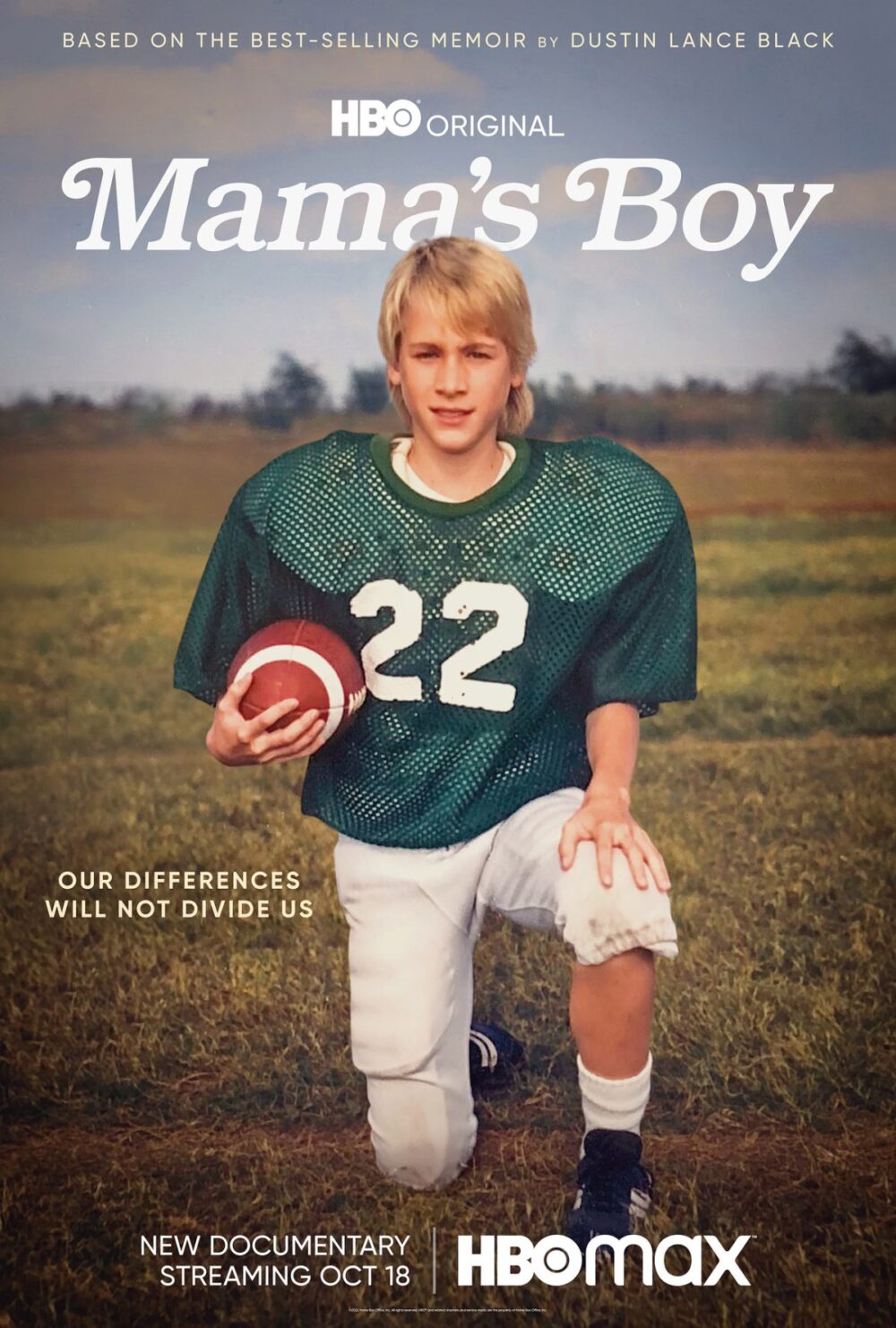
What initially inspired you to write Mama’s Boy and tell your story?
That’s a good question. My mom was becoming concerned that the temperature of politics and the political debate of the time was starting to become divisive in a way that filtered down into our family. She was having fights and debates that were putting distance between herself and her family. She felt that, and she was working hard to make sure it didn’t stay that way. We’d have these conversations where she would say, ‘I feel like there’s a storm coming that’s going to affect our family and I need you to make sure that it doesn’t harm our family.’
That storm did come. By 2016, my mom wasn’t around, but the clouds arrived, and I actually think it’s gotten worse. So, I wanted to write the book because I felt that she had shown the courage to share space with people who thought differently. She instructed me and by example to lead with story. Personal story, not just the debate points we see on 24-hour news shows, and that’s more effective than talking about the law or the science, no matter how much you believe that’s on your side. I wanted to write the book to share that, and I’m very grateful to Laurent for reading the book and seeing value in it.
Laurent, what were your thoughts after reading the book, and why did you want to direct this film?
While reading the book, which I read very fast, I was in New York working on another project and I was literally starting to look for a new film. I really wanted to do a story that spoke to me as a gay man and about my journey. I was toying with a few ideas but couldn’t find anything that I felt was worth pursuing, until I read Mama’s Boy. Even though Lance comes from a different background, and we’ve had completely different upbringings, I related to it on a very profound level. If I related to it, then I knew a lot of other people would as well.
It is very rare to find stories that discuss the breadth of everything that Lance represents. If you were to put it into a narrative, people would say, you’re exaggerating and that’s not possible. Well, it is possible. It happened to Lance and his family, so there was sort of a universal aspect of it. Frankly, purely as a storyteller and someone who gets very stimulated by cinematic endeavors, I felt that Lance’s journey, which goes from Texarkana to the hills of Hollywood and the Oscars stage, was a journey I wanted to recreate for viewers.
Again, I aim to inspire and move people. As I was making the film, and I can speak for my entire team that was with me behind the camera, we were moved to tears by all the interviews and meeting all these extraordinary people. If we were that moved, then I hope that viewers will feel the same way and they’ll relate to it on a very personal level.
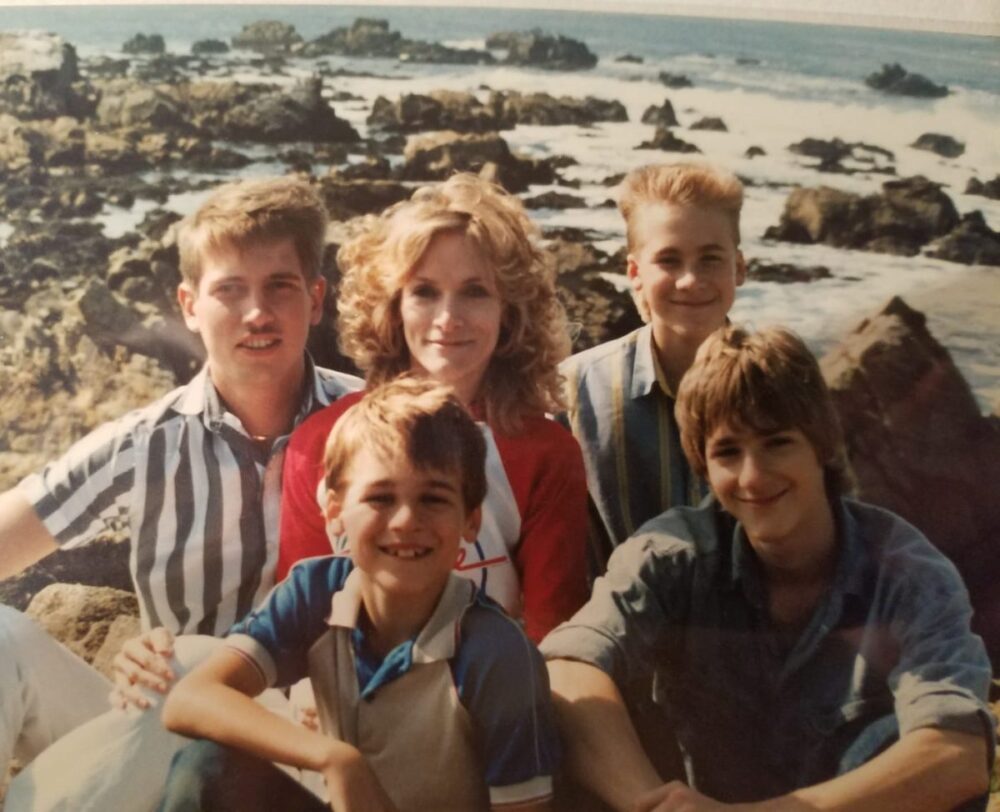
Dustin, can you talk a bit more about what it felt like to revisit your childhood roots and Mormon past?
You know, the good news is that for the most part, my mom was right. When you’re actually sitting face-to-face with someone of a different political persuasion or opinion, it’s hard to be cruel. That takes a very kind of sinister person to not be able to see the humanity when you’re making eye contact with someone. That held true, whether that was in Salt Lake City or in Texas, so I was heartened in that way, but I know it takes a leap of faith to do it. It takes the kind of strength my mother had. I do think that the stakes are high, and I would say because of your location, let’s extend that. It’s not just talking about left or right, Republican or Democrat, north or south, or coastal or southern America. We’re also talking about the divisions that we’re finding within the LGBTQ community.
I think we’ve been on a mission as minorities of all kinds to define our differences, figure out who we are and what we need, how that differs from person to person, group to group, and I think that’s been very valuable. It’s accelerated over the past 10 years and people feel stronger to say, hey, I do have it worse than these ways and I need these protections that perhaps you don’t as a gay white man, but I certainly do as a trans person of color. Yes, those are important differences, and I think it can be important to define yourself with those. The mistake that’s being made all too often is that we let those differences divide us. It’s weakening us, and frankly, I think we’re falling for it.
On social media, there are those who can benefit from our community being divided again. It was divided in the early 70s, and it’s becoming divided again, which makes us much weaker. We’re seeing our rights rolled back from place to place, and we need to unite even though sometimes we can’t fucking stand each other. It’s sometimes hard because we’re not always going to get along, and some of us do have it worse than others, but we have to lock arms and create that coalition that Harvey Milk talked about so much.
It has now been eight years since your mom passed. What do you think she would have thought about the book and film?
Oh, I think she would be distressed at how candid it is about so many things (laughs). She was a southern woman, who I think didn’t want all her trials and tribulations shared. She was adamant her whole life that she’d be judged on the strength of her character and mind, not by what she overcame. Not by the crutches that she held and the braces on her legs, but I think wherever she is now, it’s certainly in my heart, and I think there’s a place of wisdom and understanding there that she is very much an inspiration. She taught me and my friends, and hopefully because of this film, she’ll teach many other people the power of shared space and the power of curiosity to heal.
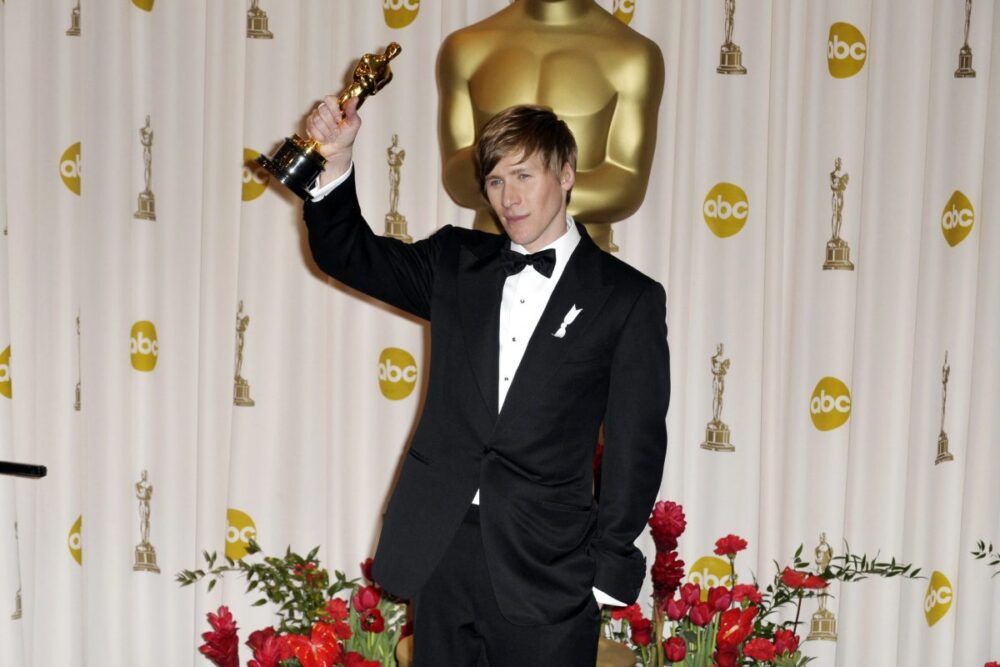
Laurent, what are your ultimate hopes for Mama’s Boy?
My hope is that people watch it, like it, share it, and that it makes a difference within families. I hope it does start conversations, but also, because I feel this story was such an inspiration and Lance is such an amazing storyteller, I want it to give hope to young people who are trying to find their voice. They are not alone, and they can find the courage to follow their dreams. That’s what I did. I moved from France to America when I was super young to find my voice not only as a gay man, but also as a filmmaker. People told me it was a courageous thing to do, but that was really the only thing I could do to find my own voice. So, I hope the film inspires people to follow that example as seen through Lance.
Stay up-to-date and connect with Black by following him on Instagram @dlanceblack, while Bouzereau can be found @laurent_bouzereau. Mama’s Boy is now streaming on HBO Max.
Photos courtesy of HBO
What's Your Reaction?
Denny Patterson is a St. Louis-based entertainment and lifestyle journalist who serves as OFM's Celebrity Correspondent. Outside of writing, some of his interests include traveling, binge watching TV shows and movies, reading (books and people!), and spending time with his husband and pets. Denny is also the Senior Lifestyle Writer for South Florida's OutClique Magazine and a contributing writer for Instinct Magazine. Connect with him on Instagram: @dennyp777.




